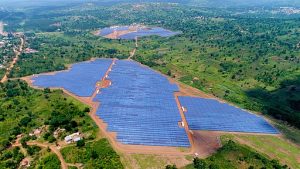
Some of my answers from an interview on China’s growing role in Africa’s energy sector can be read here.
What are some of of the main reasons for China’s interest in investing in African energy projects? Will the trend continue?
TZ: According to World Bank data, only 47.7% of people in Sub-Saharan Africa had access to electricity in 2018, compared to 98% in East Asia and the Pacific and 100% in Europe and North America. In other words, Africa’s energy markets have huge growth potential, as the demand for electricity constantly grows with progressing urbanisation. The African Union, the regional economic communities and African governments all consider increasing access to electricity as essential for social and economic development on the continent.
However, the continent has long faced challenges to raise sufficient funding for infrastructure, not least in the energy sector. China in turn has accumulated huge overcapacities in nuclear energy, hydropower as well as solar and wind energy generation. Chinese policy banks have strongly incentivised the ‘moving out’ of these overcapacities by providing loan finance and insurance for investments in Africa. Chinese firms have gotten involved in various large-scale projects that are prioritised by the African Union, such as the Grand Inga Dam project in the Democratic Republic of Congo.
Chinese investments in African energy markets are very likely to keep on growing. However, project implementation will increasingly shift from loan-financed Engineering-Procurement-Construction contracts to availability public-private partnerships whereby Chinese contractors are responsible for project finance and construction and are compensated through user fees or power purchase agreements. This implementation mode avoids the risk of sovereign default on Chinese loan-financed projects, as the sustainability of debt has waned in some African countries.
Are non-African countries more hesitant to take Chinese capital? Why do African countries seem to be more receptive than other markets?
TZ: The fact that a large share of Chinese overseas lending for energy projects has gone to Africa has several reasons. First, in global comparison Africa faces the largest infrastructure deficit in the energy sector and, hence, Chinese capital has actively targeted African markets to ‘move out’ surplus capacity from China. Secondly: As funding from multilateral development banks and capital markets has been insufficient to fill Africa’s chronic infrastructure finance gap, China has become a welcome financier in the energy sector. For the African Union and its member states, China is meanwhile a key strategic partner in growing Africa’s growing infrastructure stock and boosting the continent’s ‘green’ industrialisation. Put differently, African countries have been very receptive for Chinese investments, since there have been limited alternatives, as Western private capital usually has shorter investment horizons and higher risk aversion.
However, in recent years Chinese loan finance for overseas energy projects has decreased, as Chinese policy banks have tightened their risk assessments to avoid write-offs. This does not mean that the growth in Chinese investments in African energy markets will end. It is likely that we will witness an increase in energy projects implemented by means of private project finance whereby Chinese investors organise loans or provide equity investment and recoup their investments through pre-agreed purchase agreements or shares of user fees.
